Queer Country Crossroads: Stories of Rural 2SLGBTQIAP+ Life
Mabe Kyle, Brant County
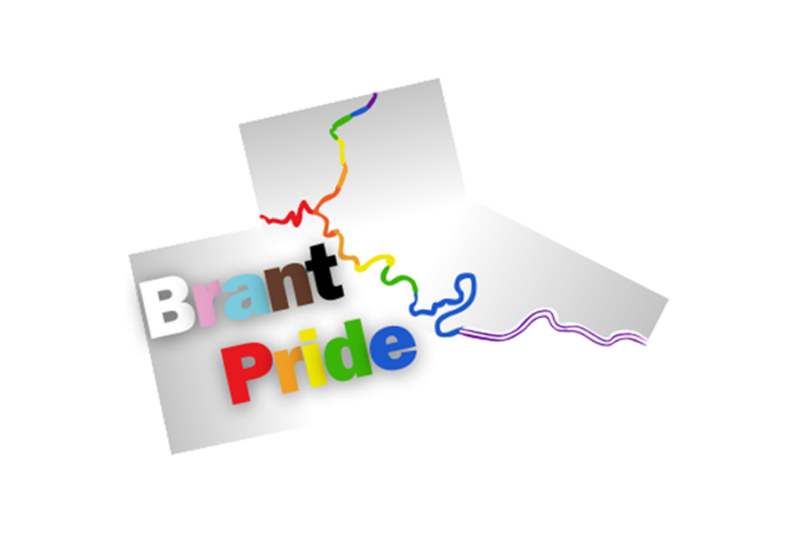
Project Description & Goals
Mabe Kyle’s project focused on co-creating the first official pride in the County of Brant, with the goal to build community for rural 2SLGBTQIA+ folks to make their local community a safer and more supportive place for all.
During the first six months of the project they added another member of their team, another community leader that is a part of the 2SLGBTQIA+ community in the county of Brant to be a co-chair for a Brant Pride committee. They have mentored Mabe in in the past in drag and the performing arts and has put on several community events within the past year, including an unofficial official Paris pride themselves.
Mabe and their new co-chair have met to discuss goals, dreams, hopes, and aspirations and worked together to identify a list of 2SLGBTQIA+ leaders within Brant who could serve as potential board members for their committee. They have already had two meetings with people who were interested in joining the board. At these meetings, they discussed initial goals and received valuable feedback and insights on their early plans.
They also planned a community meeting to consult with the community and see what they would like to have for Brant Pride 2024. The community consultation meetings took place on December 17th from 2-4pm at the Paris Branch of the County of Brant Public Library. Mabe has also met with their teacher supervisor and a student leader that runs the Panther Pride group at the local public high school to discuss a collaboration for one of the events that they are hoping to run.
My goal is to build a community for rural 2SLGBTQIA+ folks to make my local community a safer and more supportive area for all.
Project Highlights
In the early stages of their programming, they’ve already made a positive impact in their community. Community members expressed excitement about the a pride event happening in their local community, a longstanding need that some had tried to address in the past. In February of 2020, there was a committee that had been planning to create a Brant Pride that year, however, with the pandemic, the efforts fell apart and did not build up momentum again with the initial leaders.
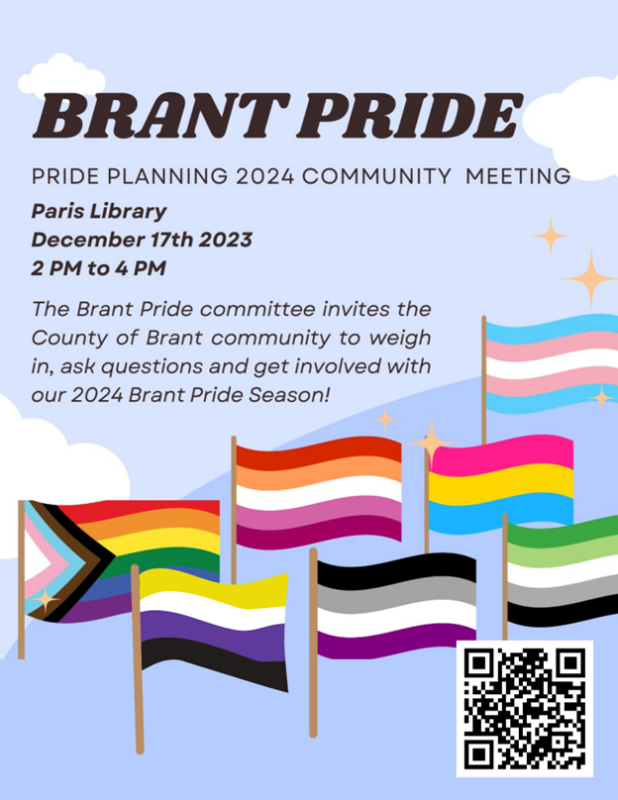 What’s Next
What’s Next
For Brant Pride 2024 the plan is to host one event per month from May to September and have an event in each ward of the County of Brant. Mabe hopes that each event has a different theme and style from one another. For example one event will be related to queer history in collaboration with high school students, another will be related to queer nature with a hike and picnic, the next on queer creativity with space to make and share art, another on queer spirituality of various forms, and to finish off the pride season, a queer joy event that has elements of the previous four events and is the typical idea of a pride in the park seen in many rural communities across Ontario. They are also hoping to have food at each event with further plan to fundraise, seek sponsorships and start a social media strategy beginning in early 2024.
About Mabe Kyle
Mabe Kyle works as a peer support worker and mental health worker. They are a student doing a graduate diploma in Expressive Arts Therapy and enjoy building community, creating art and writing and performing poetry. Mabe lives on their family’s farm in rural Brant County and a co-founder of the Rural Ontario Community of Queer Youth and a Rural Changemaker with the Rural Ontario Institute.
#socialinclusion #civicengagement #activatepublicspace
Food For joy: Promoting Well-Being and Inclusion in Little Jamaica
Micha Happie Edwards, Toronto
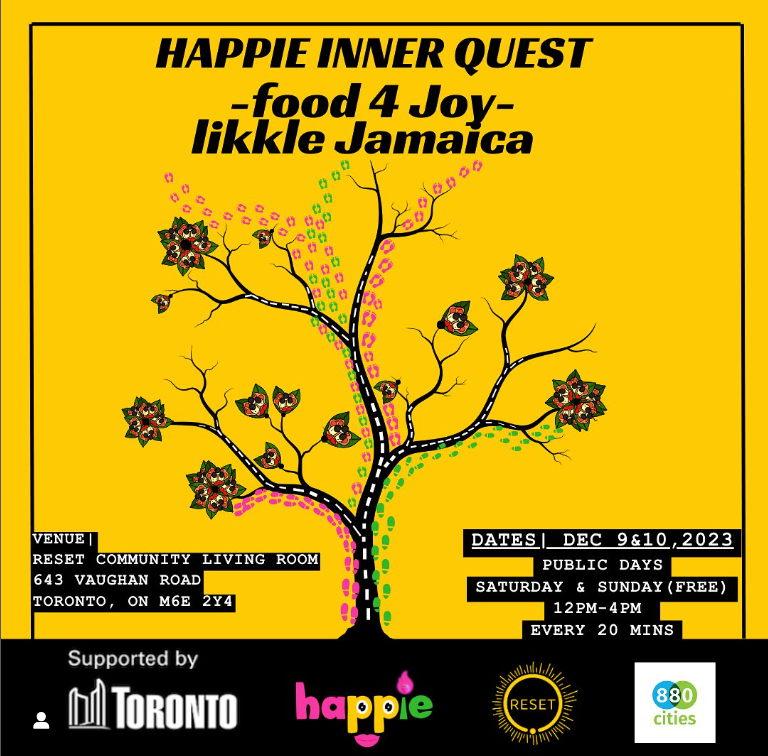
Project Description
Happie Inner Quest| Food 4 Joy Little Jamaica is a Sonic Story experience with immersive elements designed to shift the food paradigm and positively impact the joy and mental well-being of BIPOC individuals through playful food conversations. It establishes a brave space for exploring one’s relationship with food, culture, and identity, fostering community and connection. By celebrating diverse food traditions, the project promotes social inclusion and a sense of belonging. Additionally, it aims to inspire broader access to flavorful plant-based meals in local restaurants, contributing to a more inclusive and vibrant food landscape.
Over the first six months, their project brought together various talented artists, organizers, producers and entrepreneurs from the BIPOC community. By prioritizing the values of care and integrity, they were able to build a supportive team and provide the necessary resources to streamline daily operations.
Witnessing our initial idea materialize has been both challenging and deeply rewarding. Participants in the Sonic Story and Eating meditation sessions found the experience transformative and nourishing, echoing the fulfillment I’ve personally gained from the creative process. The project’s progress reflects a harmonious blend of creativity, community, and purposeful intention.
Project Highlights
In the initial six months, meeting and collaborating with like-minded individuals marked a significant highlight, fostering a shared vision. Ensuring fair compensation for the BIPOC artist and entrepreneur team was a priority, contributing to a more equitable creative landscape. The creation of the Sonic Story from the ground up, though challenging, has proven immensely rewarding, allowing a space to share this transformative experience with diverse communities.
Unexpectedly, embracing placemaking and city design has added a fulfilling dimension to Happie’s journey, allowing Happie to contribute to shaping of environments and deepening the transformative impact of their creative endeavors.
The event’s first night was catered with local restaurant called Earla’s Kitchen, which is known for its delicious Grenadian cuisine. Attendees enjoyed a meatless pumpkin and corn soup that piqued their interest in new flavours. Earla noticed that her regular customers were surprised and curious, which led to a conversation about incorporating more diverse plant-based options into her menu. The Sonic Story experience had a profound impact on the participants, inspiring them to connect with neighbouring communities and share in the joy of food exploration. This created a ripple effect of culinary discovery and transformation.
Project Challenges
The primary challenge in the first six months was navigating life’s disruptions among collaborators, affecting commitments and project dynamics. By staying true to the vision while releasing attachment to specific methods and collaborators, Happie remained adaptable. Embracing flexibility enabled Happie to approach challenges with empathy and compassion, particularly when family issues arose, especially relating to wellbeing. This perspective shift reinforced the project’s resilience, maintaining focus on the overarching vision despite the unpredictability of life.
What’s Next
Over the next six months, Happie plans on expanding the project’s reach and impact by launching a campaign to share their transformative experience with more communities, aiming to grow the work and spread the message to a broader audience.
About Micha Edwards
Micha Edwards is a self-taught artist and a graduate of Ontario’s premier school of chefs and cooks, with over a decade of experience in helping people find joy and nourishment through food. Their journey began as a personal exploration of alternative, natural ways of eating, healing, and living. Witnessing the impact of lifestyle on well-being, Micha sought to transform and shift the food paradigm, particularly within BIPOC communities.
#socialinclusion
The 440 Parkside Collective: Indigenous-led Land Restoration in High Park
Rebecca Beaulne-Stuebing, Toronto
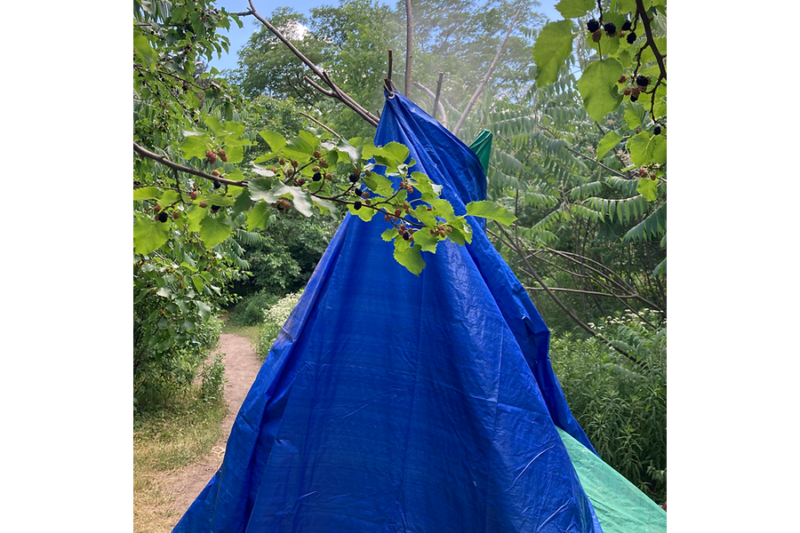
Photo via www.asemaa.org
Project Description
The 440 Parkside Collective is an Indigenous-led land restoration and community-building project based in High Park in Toronto. The collective developed out of relationships formed through the Asemaa Circles project and the Indigenous Land Stewardship Circle. The 440 Parkside Collective is a group of community members who work together to care for a 10,000 square foot space, collaboratively growing and harvesting medicines while organizing community learning and work sessions, sacred fires, feasts and other gatherings in accordance with lunar and seasonal cycles.
The 440 Parkside Collective cares for a relatively small site within a 400-acre park, in an overgrown lawn bowling field. This site is abundant in sumac, mulberry, serviceberry, buckthorn, honeysuckle, bittersweet, rose, goldenrod, garlic mustard, asters, dog strangling vine, basswood, linden, red pine, black walnut, honey locust, and other relatives. The site includes shared space with the High Park Nature Center, where community gatherings and land education take place throughout the year. The 440 Parkside Collective also participates in the annual prescribed burns in High Park in partnership with the Indigenous Land Stewardship Circle.
We are intentionally a project focused on learning and centering the wellbeing of our relatives including trees, grasses, all of the plants, water, organic matter, soil biota, and more. The project has grown through relationships, expanding out with purpose and care, rather than advertising our work as programming to the broader community; and we also collaborate with education programs and projects to facilitate land-based learning and Anishinaabemowin language revitalization.
Project Highlights
In the past six months, the collective has held community feasts and sacred fire ceremonies. They facilitated teaching sessions and participated in extended learning in collaboration with other projects, such as Natural Curiosity and ENAGB. They also hosted a number of classes in the space over the summer, hosting multiple sessions with the Waaban Indigenous Teacher Education program at York University, as well as students from the University of Waterloo.
Many community members contributed to the physical work in the space: moving soil and mulch to built mounds; carefully and painstakingly watering for hours at a time; planting hundreds of native plants, shrubs, and trees, where so-called invasive plants have been respectfully harvested. The 440 Parkside collective’s work has been recognized as a “National Healing Forest” project by the David Suzuki Foundation. In 2023 they were successful in additional funding applications to support our work, including through Tree Canada; the York University Indigenous Research Seed Grant; the City of Toronto Climate Action Grant and Indigenous Affairs Office Capacity-building Grants for Grassroots Collectives; as well as through the Ontario Community Changemakers.
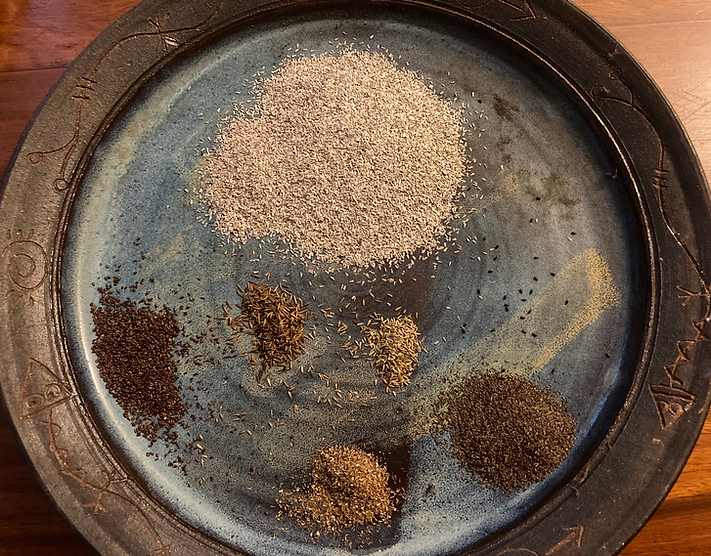
Photo via www.asemaa.org
What’s next
In the next six months, The 440 Parkside Collective has several collaborations and planned activities including:
- hosting sacred fire gatherings and feasts for community members, aligning our work with the cycles of the moon and earth/waters;
- contributing to the spring burns in High Park, supporting Indigenous community leadership and involvement;
- continue organizing teaching sessions for our communities with Indigenous Elders and cultural-ecological knowledge carriers;
- partnering with the Toronto Nature Stewards to build capacity of our collective, and we will also contribute to their stewardship training, in addition to hosting a number of work sessions with their volunteers;
- With support from York University, undertaking land-based research as a collective, to better identify the relations in the space including so-called invasive species; and to develop and implement a monitoring plan to attend to the ongoing impacts of our work;
- applying for a SSHRC Insight Development Grant to expand our land-based, collaborative research work in partnership with York University;
- taking up core lessons learned from their work in High Park, to apply these lessons in other land education contexts;
- publishing a photo essay in the journal Refractions;
- presenting about our work at the Ontario Invasive Plant Council conference;
- continue to meet regularly as a collective.
About Rebecca Beaulne-Stuebing
Rebecca Beaulne-Stuebing is Métis, with maternal family roots in the Sault Ste. Marie Métis community and Manitoba. She is also of Austrian settler ancestry through her father’s family. Rebecca completed a PhD in social justice education and Indigenous health at the University of Toronto, and is a collaborator on a number of community projects.
#socialinclusion #activatepublicspace